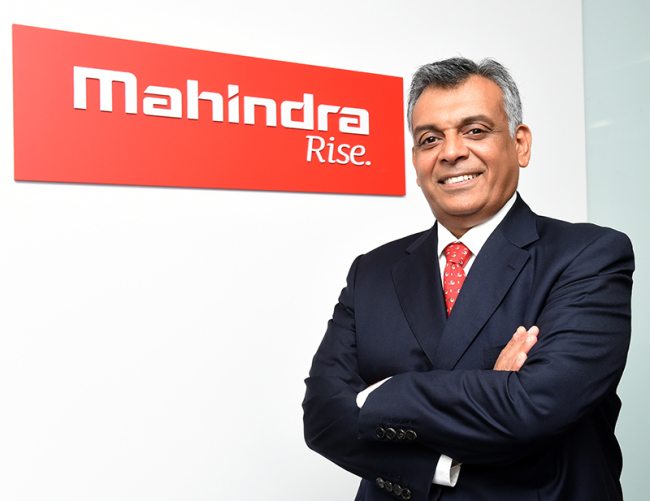Automobiles
Indian exec lures Korean investors
[THE INVESTOR] A top Indian executive in Korea is keen to raise awareness about the opportunities his country offers and is pushing to increase bilateral cultural and business partnerships.
“You don’t know what you are missing. Without living in the country, it is difficult to fully understand the extensive culture and diversity that India offers,” said the Mahindra Korea President Dilip Sundaram during an interview with The Investor on May 19, beckoning Koreans to live in his country and really explore it.
 |
Dilip Sundaram, chairman of the Indian Chamber of Commerce in Korea and president of Mahindra Korea, poses for a photo. Mahindra Korea |
Sundaram is also the chairman of Indian Chamber of Commerce in Korea, and part of his job is to connect investors and companies in Korea and India.
Despite a series of bilateral strategic alliances with India, misconceptions seem to be keeping Koreans back, in the chairman’s view.
“Korean people talk about how impressive India’s economic growth is and the size of the market. But they find the language and culture too daunting,” Sundaram noted. “Yes, it is difficult. But which country in the world is not difficult?”
India is the world’s seventh-largest country by size, and the second most populous. There are 19 official languages, not including the dialects. It is also one of the few countries where the population will remain young for next several decades, and one producing more global CEOs than any other except North America.
“India is not homogenous. There are multiple languages, regions and different cultures as you go from north to south and from east to west. I think Koreans may be intimidated by that,” said the CEO.
But Sundaram also has personally encountered Koreans who at first are reluctant to live there, but are later lured by its vibrant culture and opportunities.
On the flipside, he knows what it’s like living abroad. When he first came to Korea six years ago as CFO of SsangYong Motor after it was acquired by Mahindra & Mahindra, he remembers the first six months were very difficult. But since then, he is “loving the experience.”
He is aware that Korean steel giant POSCO’s initial unsuccessful attempt to enter India with a US$12 billion plant project back in 2005 may have scared away Korean companies. But India has changed quite a bit since then.
“The Indian government has strategically dismantled the barriers. They passed a law to make land acquisition easy for companies,” he said. “India has moved on as laws have been gradually changed and investors are being welcomed. It is now Korea’s decision to make its move,” Sundaram said, adding that POSCO has done just that with a new project in Maharashtra state.
One way to leverage the opportunities in India is by forming partnerships with local companies and government. Something European, Japanese and American businesses are doing, since the majority of investment deals in India are done through public-private partnership and joint ventures. Korea, on the other hand, has chosen to fly solo most of the time.
Infrastructure, shipping and shipbuilding sectors, among others, are the areas where Korean firms can partner with India for future growth, he said.
India offers a “strong hedge” for Korea’s declining shipping and shipbuilding industry, according to Sundaram. He thinks Korean companies could take part in Indian government-led coastal and port city development plan called “Sagarmala Project,” which includes expanding areas such as shipbuilding, shipping, port facilities and marine engineering.
“You look at Korean companies, for instance Samsung and Hyundai, and they know how to scale up. Indian companies have creativity and lots of flexibility. Start putting them together and you have a world-beater.”
Sundaram stressed India is the best place for Korea as it is seeking new investment sources, considering the current geopolitical situation.
“The Korean economy is highly focused on Japan, US and China. Politically under the circumstances, it is time to diversify. I think (Korea) is putting all its eggs in one or two baskets.”
By Ahn Sung-mi (sahn@heraldcorp.com)








